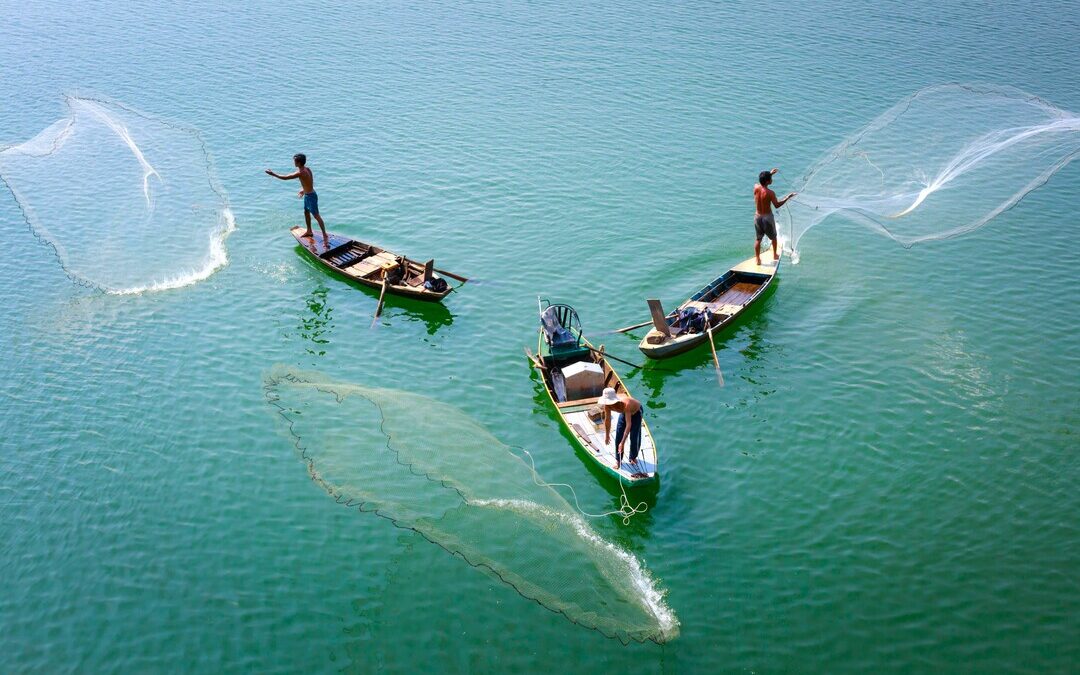Researchers Call for Social Sciences to Lead Shift in Global Blue Economy
Experts call for a justice-driven overhaul of ocean policy by integrating social sciences into the Blue Economy model.
A consortium of European researchers has issued a call to overhaul the global Blue Economy paradigm, warning that current approaches are failing to deliver on sustainability and equity.
In a report published Friday in NPJ Ocean Sustainability, the authors argue that integrating social sciences into ocean policy is crucial to reversing ecological degradation and social injustice linked to maritime industries.
“The Blue Economy, once envisioned as a path to ocean justice and sustainability, has instead often intensified inequalities, environmental harm and policy fragmentation,” said lead author Jerneja Penca of the Science and Research Centre Koper in Slovenia. “We need a systemic rethinking anchored in society, not just in sectors or markets.”
Blue Economy’s Promises Undermined by Inequities
Coined by Small Island Developing States in 2011, the Blue Economy originally aimed to align ocean-based development with social equity and ecological stewardship. But researchers say the concept has increasingly been hijacked by powerful economic actors.
Today, the Blue Economy is often defined narrowly by its industrial components — like fisheries, cruise tourism, offshore wind and aquaculture — many of which are now under fire for causing pollution, displacing traditional sea users and marginalizing vulnerable communities.
In particular, the paper highlights how the growth of cruise tourism has harmed ecosystems and port communities, and how renewable energy projects, despite their climate benefits, are triggering new conflicts with fisheries and coastal livelihoods.
Social Sciences Offer Path to Equity
To reverse this trend, the authors propose a strategy that positions the social sciences as central to ocean governance.
According to Penca, the social sciences contribute by identifying power asymmetries, designing alternative visions of ocean use and enhancing decision-making through inclusive dialogue.
“Without the social sciences, we overlook the cultural, political and systemic forces that drive injustice,” she said.
For example, research on small-scale fisheries has exposed barriers to accessing seafood markets and fishing rights, offering policymakers practical insights to dismantle entrenched inequalities.
Five Principles to Rethink the Blue Economy
Drawing from European scientific networks such as the COST Action “RethinkBlue,” the authors propose five organizing principles to embed social science into marine policy and practice:
Societal Anchoring: Research agendas should shift from siloed sectors to address societal challenges, such as food security, maritime labor and climate resilience. This human-centric focus promotes cross-disciplinary solutions rooted in real-world impacts.
Co-Creation with Sea Users: Science must break out of academic silos and be co-produced with fishers, local communities and civil society. One example: fishing groups and schools collaborated to create sustainable local seafood supply chains, bypassing traditional market constraints.
Stronger Science-Policy Interfaces: Researchers are urged to engage directly with decision-makers through tools like policy briefs and targeted training. “Scientific detachment doesn’t help the oceans,” Penca said. “We need proximity to policy.”
Integrated Knowledge Networks: The report advocates for more inclusive, transdisciplinary collaboration, particularly with marginalized experts, including historians, designers and researchers from underrepresented regions. The goal is to prevent intellectual hegemony and promote innovation.
Accountability and Care in Research: Rethinking the Blue Economy also means rethinking research culture. Governance within scientific communities should be transparent and inclusive, rooted in kindness, dialogue, and mutual respect. This includes mentoring younger scholars and decentralizing leadership.
Collective Action Urged
The report emphasizes that the responsibility to reshape the Blue Economy does not lie with scientists alone. Policymakers must revise assessment tools and governance models to prioritize social well-being, equity, and ecological care.
“Rethinking the Blue Economy is not just an academic exercise,” Penca said. “It’s a collective task—for researchers, policymakers, and society—that requires new metrics of success and fundamentally different relationships with the ocean and each other.”
Nirmal Menon
Related posts
Subscribe
Error: Contact form not found.


